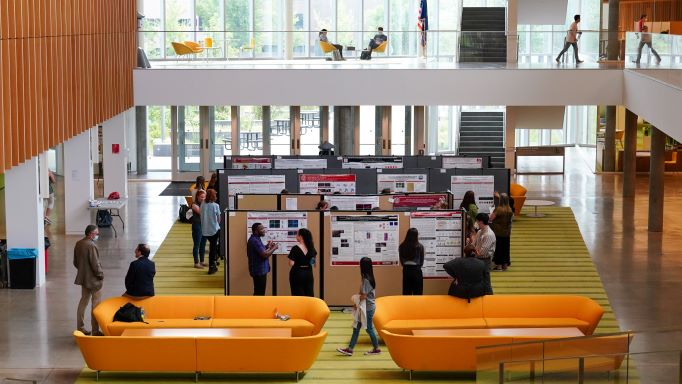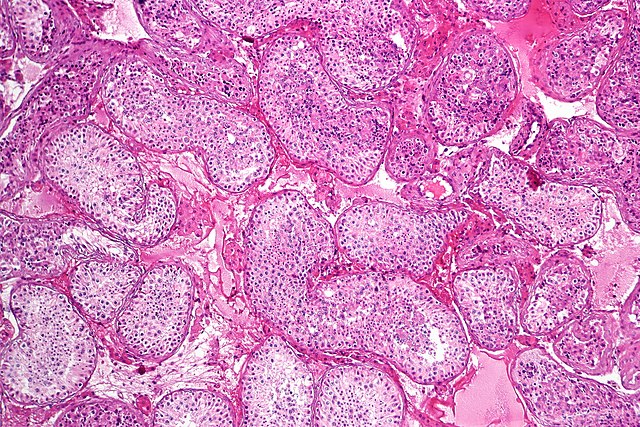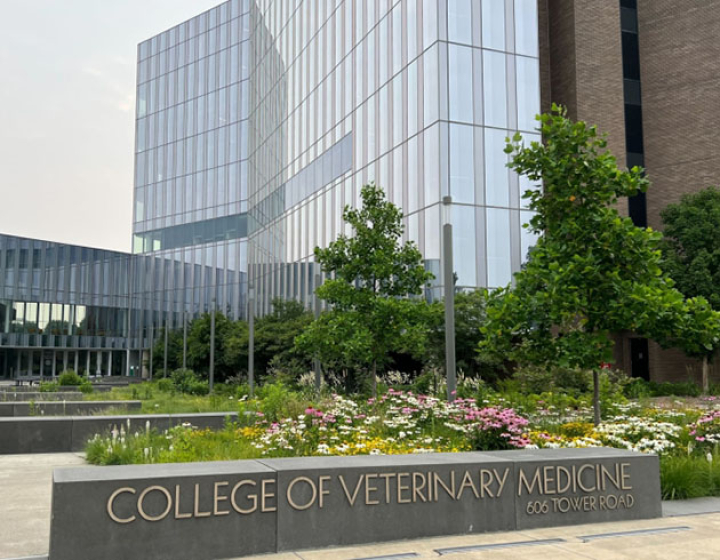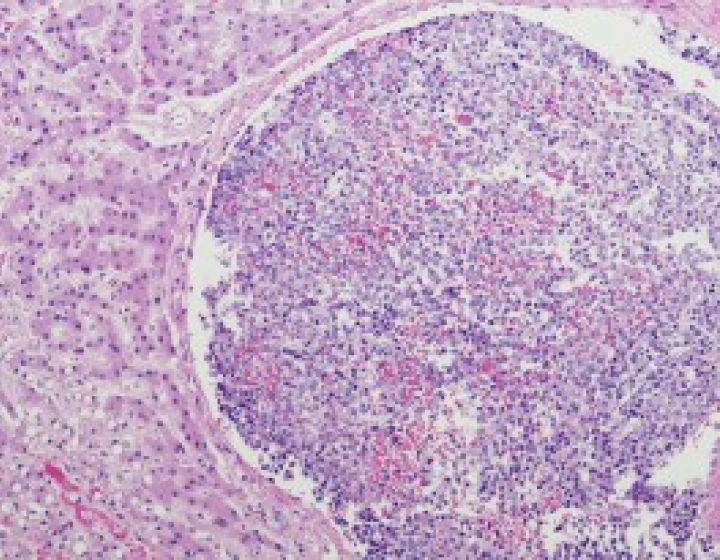Reproductive biology a core strength at CVM
Hundreds of experts in reproductive biology will convene at Cornell’s College of Veterinary Medicine on April 27 for the annual Tri-Institutional Symposium on Reproductive Biology and Infertility, or Tri-Repro, a regional conference that showcases the latest research in the field of reproduction.
The conference will showcase the College’s strength in reproductive biology, which has been a cornerstone of research on campus for decades. Cornell is home to the newly-expanded Cornell Reproductive Sciences Center (CoRe), one of the eight multidisciplinary research centers in the nation focused on reproductive biology.
The symposium is a shared event across three institutions – Cornell’s Center for Reproductive Genomics, the University of Pittsburgh Magee Women’s Research Center, and the University of Pennsylvania Center for Research on Reproduction and Women’s Health. All three are National Centers in Translational Research on Reproduction and Infertility (NCTRI) funded by National Institute of Child Health and Human Development (NICHD).
“Tri-Repro is commonly regarded as one of the most successful nationwide conferences in reproduction,” explained Dr. Paula Cohen, professor of genetics and director the Center for Reproductive Genomics. “It brings together the top experts from the northeast and puts a strong focus on our graduate, postdoctoral, and resident trainees.
“The idea is to highlight reproductive biology as a career choice,” she said. “Our trainees learn what it takes to put on a conference like this, and they have the opportunity to present their work. Reproductive biology has been a cornerstone of research at Cornell for many decades, and this conference puts a spotlight on that.”
The symposium began at Cornell 12 years ago; the Universities of Pittsburgh and Pennsylvania joined in the past six years. The event is funded with a R13 conference grant from NICHD.

A focus on graduate trainees
Leah Simon, a graduate student involved in organizing the conference, will be presenting her research on identifying options for non-hormonal contraception for males.
“I’m really excited to take part in presenting my work,” she said. “Every time you present, you’re learning important skills such as how to condense your research, how to explain your science to an audience that may know nothing about what you are studying specifically, and more to make effective charts and diagrams.
“I also love the sheer networking capacity of this event,” she said. “I know I’ll be walking into a room with 100 other people working in the same realm as me. I find myself forging alliances and making really good friends.”
The conference will feature the second annual Stuart Moss Memorial Lecture. Moss was a program officer at the National Institute of Child Health and Development, where he directed the Male Reproductive Health Program and led NCTRI. Stuart was a huge advocate for trainees, so he particularly loved attending Tri-Repro.
In addition, the Bill and Melinda Gates Foundation will host a separate conference on April 26, the day before Tri-Repro, where researchers funded by the foundation will present their work on non-hormonal contraception.

A multidisciplinary approach to male infertility
CoRe, originally called the Center for Reproductive Genomics, was first established in 2009. It brings together Cornell’s scientific experts on reproductive health and fertility with a focus on the genetic components that lead to healthy sperm development. The center was recently renamed to reflect an expansion towards all areas of reproductive health.
CoRe is one of the eight NCTRI centers in the United States. The center promotes multidisciplinary research in more than a dozen labs throughout Cornell, funds a weekly seminar series, and sponsors outreach on reproductive biology in K-12 schools.
“This grant really gives us a center stage nationally in reproductive biology,” Cohen said. “When you bring together researchers from diverse backgrounds and disciplines, magic happens.”
The NCTRI-funded research focuses on spermatogenesis, the process of producing sperm from stem cells. Cornell researchers are investigating three distinct stages of this process.
A project managed by Cohen and Associate Professor Charles Danko, a genomics expert at the Baker Institute for Animal Health, explores how RNA is regulated as the body creates sperm cells, and how this ultimately affects male fertility.
“Sperm cells have a very unique gene expression environment, and it’s poorly understood,” Cohen explained. “We’re trying to understand how the gene expression program changes to create healthy, reliable sperm. This question is absolutely crucial in male fertility.”
Second, a team of researchers led by John Schimenti, professor of genetics in the Veterinary College, and Andrew Grimson, associate professor of molecular biology and genetics in the College of Agriculture and Life Sciences, are investigating how RNA’s behavior in sperm cells affects fertility. They are specifically focused on messenger RNA, or mRNA, which is directs protein synthesis. They are working with Dr. Kathleen Hwang, a urologist at the University of Pittsburgh School of Medicine.
“We think there is a problem during this process that affects fertility – either cells don’t make proteins at all or they make too many proteins,” Schimenti said. “We understand the general mechanism, but we don’t know if any people are infertile because they have mutations in an mRNA that affects its levels.”
The third project is managed by Dr. Samie Jaffrey, a professor of pharmacology at Weill Cornell Medicine, who is studying how certain enzymes impact RNA function. “These signatures added onto RNA are critical to making sperm, and we know nothing about this process,” Cohen said.
Taken together, the center as a whole is focused on bringing researchers together to understand the fundamental biology that underpins all aspects of reproductive health, including fertility, reproductive aging, and maternal health.
“You can apply it to infertility in humans and all sorts of species that are threatened in some way,” Cohen said. “At the end of the day, we are working to ensure everyone is able to choose when and if to have children, and so we can all have healthy pregnancies and healthy babies.”
Written by Sheri Hall





